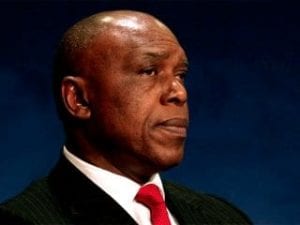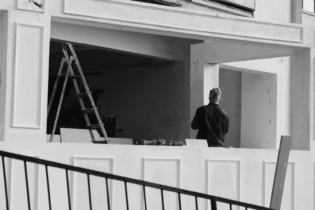The R50 billion bill for the rectification of shoddy workmanship on low-cost housing was forcing the government’s hand towards a state-owned construction company, Human Settlements Minister Tokyo Sexwale said last Thursday.
However, a decision had not yet been taken on establishing such a company, Sexwale told a construction sector breakfast. “I’m calling for a debate on the issue,” Sexwale said. “It’s an open-ended agenda. I cannot continue to do this job knowing that the figure of R50 billion will escalate and you have to go back to the same people to do the rectification. “All South Africans must feel it is worth it to pay taxes because they are used properly.” Sexwale confirmed a government team had been to Brazil, which has a state-owned construction company, and further teams would be sent to various parts of the world to see how state-owned construction companies worked. The minister added: “For me, if it works, we will do it. If there are problems, we will drop it but then I’m still sitting with a problem.” The minister stressed that when he mentioned the idea of a state-owned construction company in Parliament in February he did not state that such a company must be 100% government controlled. “It could be 50% or 20%. I’m not going to trust anybody in my office to run such a company. But I haven’t taken a decision to do that. All I have said is that we have a R50 billion problem. Let’s have a debate and hear the arguments.” Sexwale said huge government projects were given to a few companies that were credible and knew what they were doing but when houses were built for the country’s people “we give it to people who think it’s their right to get contracts”. He questioned why the government must continue with this practice and why major companies together with their empowerment partners should not be building some of these houses.He said legislation said black economic empowerment (BEE) must be assisted but “BEE must not be defined as shoddy workmanship”. “That is not BEE. Those are chance-takers. Lots of BEE companies know what they are doing but a lot of them take chances because they think their blackness will help them get into money very quickly.
“We’d like to stop that. We want people who are credible, people who pay attention to detail, to know-how, to skills and then provide quality products,” he said. Sexwale said the tender system had been blamed for the problems but it was “the crooking” of the tender system that was the problem. Gregory Mofokeng, the secretary-general of the Black Business Council in the built environment, said the problem was that there was no competitive bidding in low-cost housing and only allocations. This system was being abused because contractors did not have to demonstrate their capacity. “When those companies are not performing, BEE gets a bad name,” he said. “High-volume allocations must be given to companies that can perform and those companies that do not have the capacity can still be given something but equal to their capacity,” he said. Mofokeng said building inspectors who colluded with contractors and certified shoddy workmanship must also be blacklisted to prevent them from moving to another province and continuing to approve and certify shoddy workmanship. Consulting Engineers South Africa (CESA) previously said it was strongly opposed to the creation of a state-owned construction company. Naren Bhojaram, Cesa’s president, said the state should not set up structures in competition with the private sector, but create a platform and conducive environment in which the private sector could excel, which would grow the economy and create jobs.Source: Business Report








